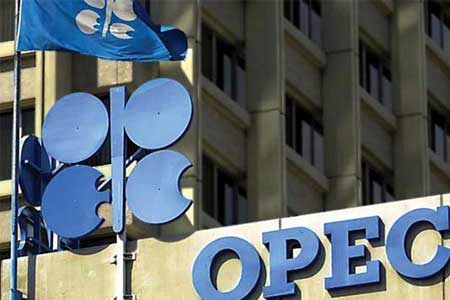


ArmInfo.Armenia plans to borrow EUR 50mln from the OPEC Fund for International Development. Armenia's Parliament has ratified an agreement with the Fund.
Presenting the document for ratification, Deputy Minister of Finance of the Republic of Armenia Eduard Hakobyan noted that the funds raised will be used to finance the 2023 state budget deficit. The Deputy Minister noted that within the framework of the financial assistance program adopted earlier by the National Assembly of the Republic of Armenia, it was planned to attract a total of $350 million, however, taking into account the fact that capital expenditures in the amount of 550 billion drams exceed the volume of the state budget deficit of the current year in the amount of 290 billion drams, the resources attracted will be aimed at solving this problem. In particular, we are talking about financing the capital expenditure program, including the construction of schools, kindergartens, healthcare facilities, roads, etc.
The Deputy Minister noted that loan agreements with the OPEC Fund were signed on October 3 and 23, 2023. Interest repayments on the loan will be based on six-month Libor and a fixed spread of 1.6%, which is currently 5.6%. The funds are provided for a period of 20 years, of which the first five years will be preferential.
The project aims to promote green, sustainable and inclusive development in Armenia by promoting climate change mitigation and adaptation, improving environmental management and energy efficiency, achieving greater levels of equality and promoting human capital development, as well as strengthening governance.
Hakobyan recalled that the implementation of measures and reforms in a number of areas defined by a bilaterally agreed table of political actions is a prerequisite for receiving budget support funds. The program is being implemented jointly with the World Bank, which provided a loan of $100 million, so the scale of reforms is identical to the table of policies of the loan agreement signed with the World Bank on April 4 of this year.
The scope of the program reforms includes such components as promoting climate change mitigation and adaptation, as well as improving the regulatory framework for environmental management, managing public investments, promoting energy efficiency, preserving atmospheric air, assessing environmental impacts, strengthening equity and promoting human capital development. The document also establishes an increase in the targeting of the social support system and the introduction of a new curriculum based on competencies aimed at achieving learning outcomes. It is planned to increase the effectiveness of the anti-corruption system and the justice sector.